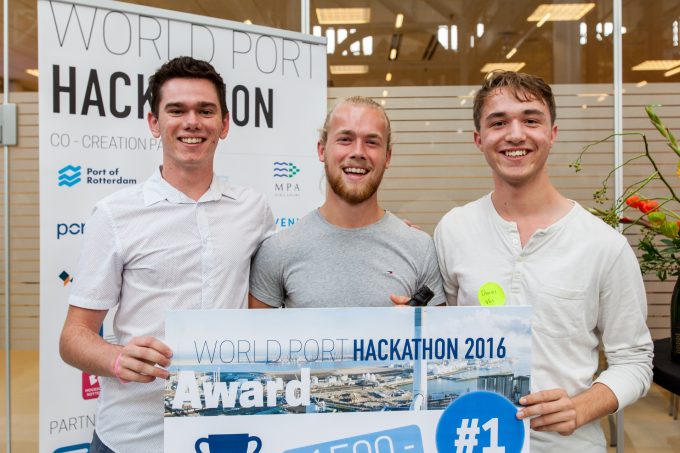'Toxic' boxes taken off Maersk-chartered ships for return to origin
More than 100 containers onboard two Maersk-chartered ships will be offloaded in Singapore and returned ...
WTC: RIDE THE WAVEFDX: TOP EXEC OUTPEP: TOP PERFORMER KO: STEADY YIELD AND KEY APPOINTMENTAAPL: SUPPLIER IPOCHRW: SLIGHTLY DOWNBEAT BUT UPSIDE REMAINSDHL: TOP PRIORITIESDHL: SPECULATIVE OCEAN TRADEDHL: CFO REMARKSPLD: BEATING ESTIMATESPLD: TRADING UPDATEBA: TRUMP TRADE
WTC: RIDE THE WAVEFDX: TOP EXEC OUTPEP: TOP PERFORMER KO: STEADY YIELD AND KEY APPOINTMENTAAPL: SUPPLIER IPOCHRW: SLIGHTLY DOWNBEAT BUT UPSIDE REMAINSDHL: TOP PRIORITIESDHL: SPECULATIVE OCEAN TRADEDHL: CFO REMARKSPLD: BEATING ESTIMATESPLD: TRADING UPDATEBA: TRUMP TRADE

Frankly, this article could do with a better headline, because it’s an intriguing glimpse into the juncture where the port industry and some of the world’s most advanced software programmers collide – at the annual World Port Hackathon. Yep, you read that right. Now in its fourth year, the World Port Hackathon, supported by the ports of Rotterdam and Singapore, invites around 100 “non-port geeks” and asks them to solve some more traditional port-related problems using disruptive technologies – such as developing an Airbnb-esque solution to create berthing windows for vessels. This winning idea was called Blockchain for Customs which “adapts the blockchain technology that underpins the bitcoin currency to detect potential fraudulent actions in the supply chain”.


Comment on this article